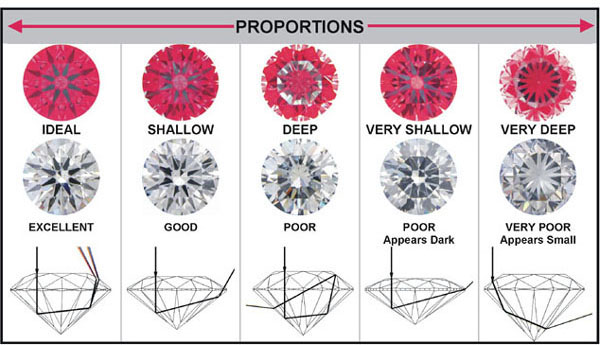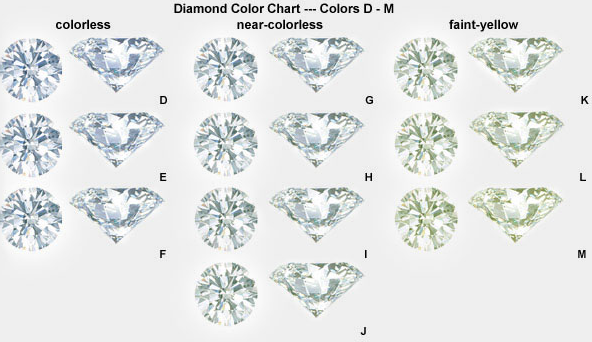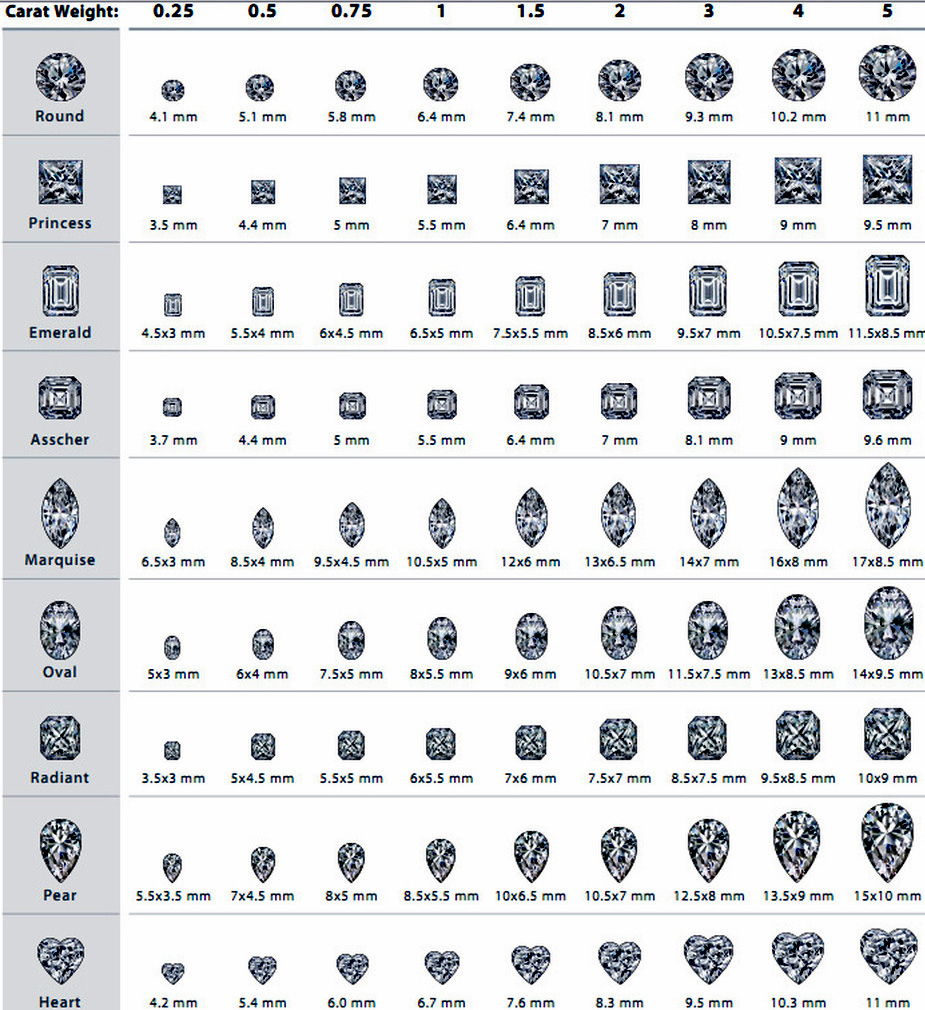» Diamond Guide
Diamond is one of the most precious stones in the world. Because the diamonds are the hardest of all substances on this earth, they are always considered as the most suitable material to make jewelry. Diamonds are incredibly resistant to heat and scratching and can only be polished or scratched by another diamond, but an extremely hard blow to the girdle can cause a chip. By having your diamond placed in a protective setting your diamond can stay intact for a lifetime. Their sparkle, if cared for well, will remain undiminished for hundreds and hundreds of years.
At inluxeking.com, we make the diamond jewelry with the GIA certified diamonds. We are able to customize diamond jewelry as per your special requirements. Follow the diamond guides below to know the basic diamond knowledge.
How to Buy a Diamond
There are 4 C’s to always keep in mind when purchasing a diamond:
CARAT – The size and weight of a diamond is always classified by carats and points. One hundred points make up one carat. A diamond that weighs less then one hundred points is sometimes identified in point size, for example a .55-carat diamond can also be titled as a 55-point diamond. When diamonds are mined, larger stones are found a lot less frequently then smaller stones making larger diamonds more valuable. Usually, the pricing of diamonds goes up with the carat size.

CLARITY – The greater a diamond’s clarity, the greater its brilliance, sparkle, and value. Diamonds that have perfect clarity are the most sought after and therefore are the most expensive. Most diamonds have inclusions, which are scratches, trace minerals, or any other tiny flaw that takes away from the natural beauty of a diamond. These so-called birthmarks resemble tiny clouds, crystals, and/or feathers. Diamonds that are classified as flawless show no inclusions, these are rare and sought after because of their beauty. Diamonds with extremely tiny inclusions follow flawless diamonds in quality, because the larger and the more visible the inclusions, the lower the quality and rarity, forcing the value of that diamond down. The number, type, color, position, and size of surface and internal inclusions affect the value of the diamond. The reason for this being that large inclusions can disrupt the path of light as it travels through the stone, taking away from its sparkle and value. Ratings are marked as FL for flawless, IF for internally flawless, VVS1 and VVS2 for very very slightly included, SI1 and SI2 for slightly included.

CUT – The cut of a diamond, or the roundness, depth, width, and uniformity of the facets, determine a diamond’s brilliance. The width and depth have the greatest effect on how light travels through and exits a diamond in the form of brilliance. In a diamond that has been cut too shallow, light is lost through the sides causing the diamond to lose its brilliance. In a diamond that is cut too deep, light will escape through the bottom causing the diamond to appear dark and dull. The proportions of a diamond, specifically the depth compared to the diameter, and the diameter of the table compared to the diameter of the diamond, determine how light will reflect and refract within a diamond. While nature establishes the color, clarity, and carat weight of a diamond, it takes a skilled artisan to unveil a diamond’s inner beauty. When a diamond is cut well, light reflects from one mirror-like facet to another and radiates through the top of the diamond.

COLOR – Diamonds are graded by color. Acting as a prism, a diamond can divide light into a spectrum of colors and reflect this light as colorful flashes called fire. A true colorless stone is very rare and sought-after for its quality. The less color in a diamond, the more colorful the fire, the better the color grade. Grading goes by the letters of the alphabet, D being the greatest color quality and Z being the lowest color quality.

Asscher Cut Diamond Shape The “Asscher cut diamond” was developed in 1902 by the Asscher Brothers of Holland. It is a stepped square cut, often called the “square emerald cut” and like an emerald cut, the Asscher has cropped corners.
Until recently, very few stores carried Asscher cut diamonds. But the Asscher cut has rapidly gained popularity as it was featured on the television show Sex & and the City and stars such as Kate Hudson have received Asscher-cuts as engagement rings.
Definitions you should know: Girdle: The narrow band around the widest part of a diamond. Diameter: The width of the diamond measured through the girdle. Table: The largest facet of a gemstone. Crown: The top portion of a diamond extending from the girdle to the table.
Diamonds Sharp & Weight

Care of Diamonds
Even though diamonds last forever, they must be cleaned periodically to ensure their brilliance. A solution of one part ammonia and six parts water can be used to clean diamond jewelry. It is also a good idea to have your diamonds checked once a year by a professional to ensure the setting is secure.
For any questions regarding to your diamond jewelry, you are feel free to contact us.


